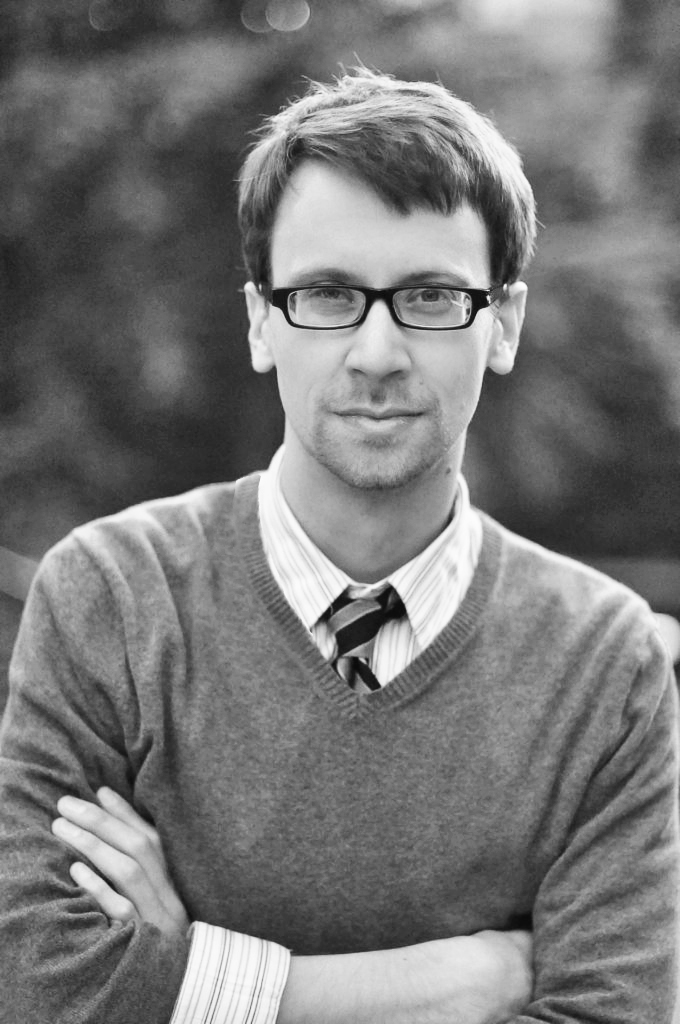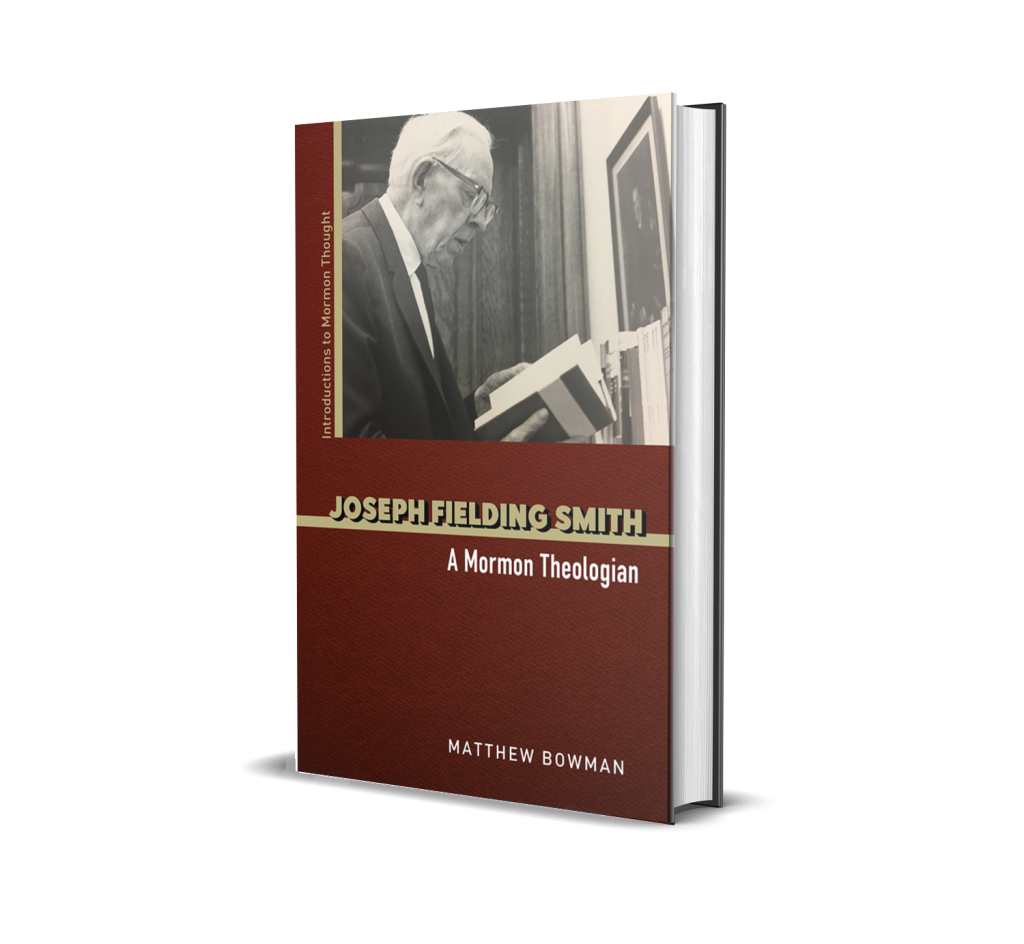Matthew Bowman, author of Joseph Fielding Smith: A Mormon Theologian, answers questions on his new book.
Q: Why did you decide to write this book?
In part because it needed to be done. Joseph Fielding Smith was one of the most significant theologians in Mormon history and certainly the most significant in the 20th century, yet there has to date been no scholarly study of his work.
In part, though, also because I wanted to do it. Because most scholars of Mormonism are not theologically conservative little attention is paid to conservative figures like Smith, as opposed to more liberal-leaning Mormon thinkers like Brigham Henry Roberts or John Widtsoe, who have received lots of scholarly attention. And yet I find conservative thinkers interesting; their thought was certainly more influential on the last hundred years of Mormon history than that of liberal Mormon thinkers.
Q: What myths do you hope your book will dispel or what do you hope your book will help readers unlearn?
Joseph Fielding Smith is sometimes referred to with the shorthand of ‘fundamentalist,’ particularly by those critical of him. I wanted to pay close attention to that term: what does it mean to scholars, as well as those who use it? Historically speaking, “fundamentalist” was first used by some Baptists in the 1920s to refer to their adherence to particular points of theology. In that sense, the term does not at all apply to Smith, who found Baptists heretical (and vice versa). More recently the term “fundamentalist” is often used to mean those whose religion draws them away from the cultural mainstream. That’s more useful, and yet still does not quite apply. I use “anti-modernist” instead. A term coined by the scholar Jackson Lears, it refers to people in the early twentieth century who found the evolution of the modern Western world – its scientism, its cosmopolitanism – distressing.
Q: What is your advice to scholars/authors who want to take on a similar project?
Mormon intellectual history is still in its infancy. The best thing scholars who want to work on it can do, I think, is to become deeply familiar with the intellectual context of the period. Much Mormon intellectual history to date has paid very close attention only to Mormon thinkers themselves. But to fully understand them, one needs a good grounding in the intellectual water they swim in, which certainly includes Mormonism, but also the broader world of United States intellectual life (and increasingly, other nations as well).
Q: What do you like to read/watch/or listen to for fun?
I’m a passionate NBA fan, and used to play basketball before my knees hit their late thirties. I was also a film major for a little while in college, and try to see a lot of movies. Joseph Fielding Smith would have approved of the first, but not the second.

Matthew Bowman is Howard W. Hunter Chair of Mormon Studies at Claremont Graduate University, with a joint appointment as an associate professor of history and religion. His books include Christian: The Politics of a Word in America.

